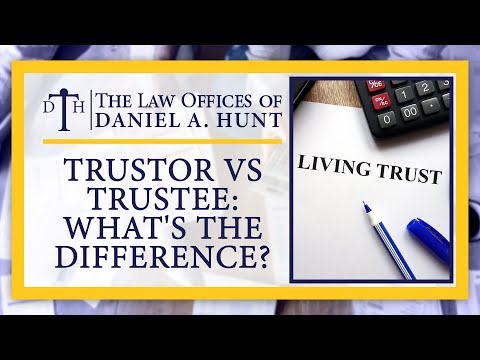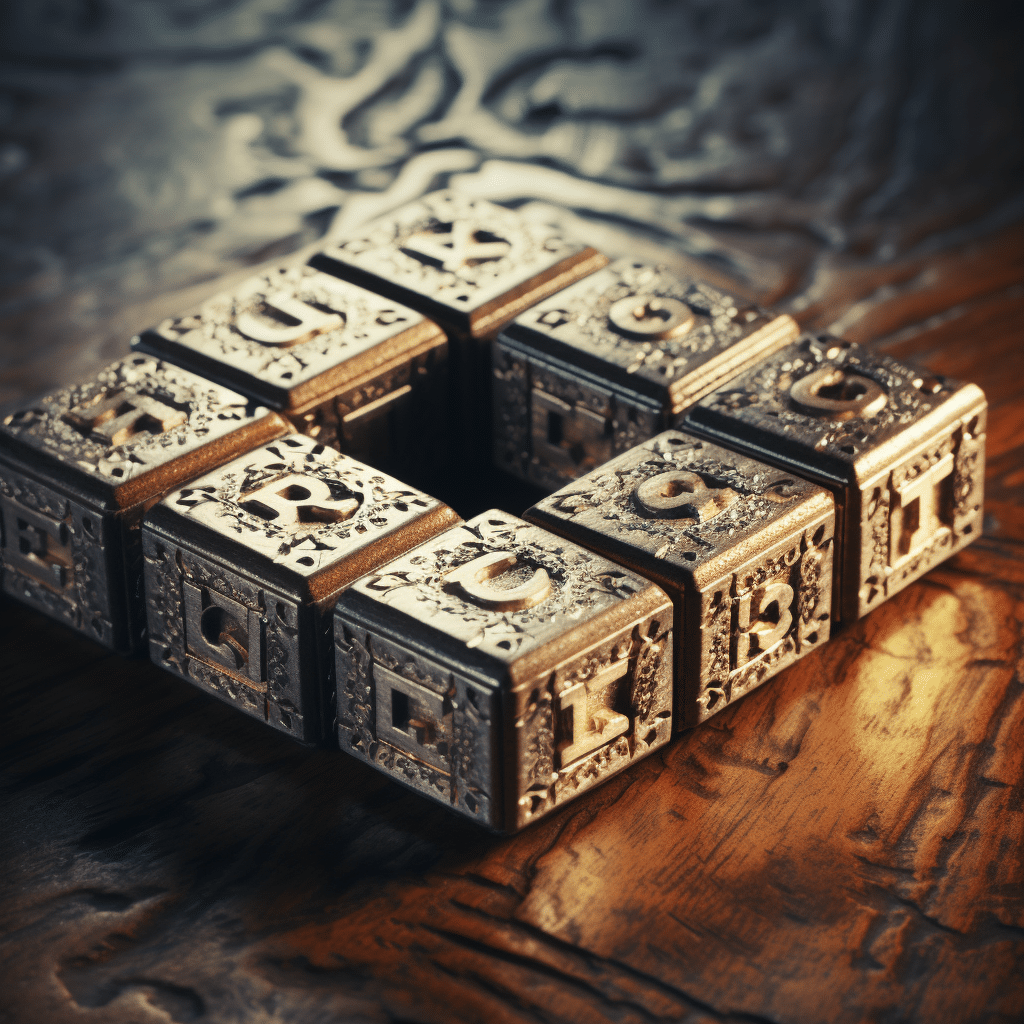Unraveling the Trustor vs Trustee Mystery: An Overview
The trustor vs trustee dynamic, a bit of a Rubik’s Cube in the world of trusts and estates, is an essential concept to grapple with when it comes to understanding real estate finance. The trust definition is in itself a simple one – it’s a three-party fiduciary relationship in which the first party (the trustor) transfers a property upon the second party (the trustee) for the benefit of the third party, the beneficiary. But who does what exactly? Let’s break it down.
Trustor Defined: The One who Gives Trust
A trustor is a person who creates the trust, transferring assets to it. Trustors can come in many forms, from well-off individuals looking to secure their financial legacy, state planners aiming to dodge potential estate tax pitfalls, or even philanthropists eager to support a cause post-mortem.
Now imagine you’re a successful entrepreneur. You’ve spent years building your dream from the ground up, and it’s finally yielding fruit. It’s a legacy you want your grandkids and their grandkids to enjoy. So, you become a trustor and set up a trust. You transfer your company shares into it, securing your legacy beyond the grave, and voila! You’ve now dipped your toes into the trust world as a trustor, ensuring a controlled transition of your assets when you’re gone.
Trustee Unpacked: The Trusted Custodian
On the flip side of the trustor vs trustee coin sits the trustee, the party entrusted to manage these transferred assets. Trustees have a legal responsibility to act in the beneficiaries’ best interests, making decisions about asset management, distribution, and more.
Think about this scenario. You’re the favorite sister of our earlier entrepreneur, virtuous as they come, with a knack for handling legal and financial matters. As a token of trust, he appoints you as the trustee to his trust. Now you’re the go-to person for the trust’s sound management. From deciding if some company shares in the trust should be sold, to settling any legal unrest, it’s now in your hands.

Trustor vs Trustee: Unveiling the Key Differences
In the center of the trustor vs trustee puzzle, we find that the trustor is the individual creating the trust and transferring assets into it, whereas the trustee is responsible for managing these transferred assets. It becomes clear, then, that the key distinction lies in their roles and degree of control over assets.
Also, their motivations typically vary. Trustors are often motivated by their desire for safe and effective asset management, reduce tax liabilities or secure financial legacies, whereas trustees usually accept their role out of duty or obligation, close relationships with the trustor, or sometimes for a fee if they’re a professional trustee.
Central to the trustor vs trustee relationship is the power dynamics. While it might seem like the trustee holds immense power, backed by legal obligations, make no mistake – the trustor isn’t just a helpless damsel in distress in this story. With the initial right to establish trust terms and select the trustee, the trustor possesses significant latent power, very much like the inter Vivos trust scenario where in most cases the trustor continues to manage their assets.

Trustor vs Trustee in Mortgage: A Decisive Comparative Analysis
Looking through the mortgage lens, the trustor is typically the borrower of the mortgage loan, whereas the trustee is usually a financial institution, like Bato, that holds legal title to a property until the loan is fully paid off.

| S.No | Term | Description |
|---|---|---|
| 1. | Trustor | An individual person or a married couple who establishes a trust. They are also referred to as settlor or grantor. The trustor continues managing their assets just as they did before they created the trust. |
| 2. | Trustee | A person or persons appointed by the trust document to hold and manage the property mentioned in the trust. The trustee is responsible for ensuring the assets are distributed as per the instructions given by the trustor. Even though the trustee holds the legal title to the trust property, they do so for the benefit of the trust beneficiaries, who hold equitable title. |
| 3. | Power | The trustee holds more power compared to the trustor. The trustee manages the trust, makes decisions, and has the responsibility to ensure the distribution of assets according to the trustor’s instructions. |
| 4. | Ownership | The trustor is the initial legal owner of the assets. When they establish a trust, legal ownership moves to the trustee. However, the trustee holds the assets for the trust’s beneficiaries, not for their personal use. |
| 5. | Successor Trustee | In the event of the trustor’s incapacitation or death, a successor trustee steps into the trustee role. Especially in the case of an irrevocable trust, the trustee is a person different from the trustor. |
| 6. | Trust | A legal agreement where often three parties are involved; The trustor who creates the trust, the trustee who manages the trust, and the beneficiary who benefits from the trust. The trustor transfers the legal title of his or her properties to the trustee who holds them for the benefit of the beneficiary. |
Navigating the Waters of Trustor vs Trustee
Mastering these roles might be trickier than figuring out the language behind We made too much Lululemon shoes! It’s important to understand the responsibilities that come with being a trustor or trustee, as these roles are often more complex than they appear.

Futuristic Outlook: The Impact of Changing Legal Norms on the Trustor vs Trustee Landscape
Looking into the future, any change in laws and regulations can dramatically alter the trustor vs trustee dynamic.

Haven to Horizon: Deciphering the Trustor and Trustee Interactions
Well-navigated trustor and trustee relationships are indeed a sanctuary in the world of estate planning.

The Final Piece: Unearthing the Trustor vs Trustee Puzzle
In short, the trustor vs trustee dynamic forms the backbone of trust and estate planning mechanisms. Armed with this knowledge, the hope is that you can now approach these roles with resilience to understand the trust industry’s intricacy.
Phew! That was a deep dive. But remember, life – just like understanding the trustor vs trustee concept- is not about the destination; it’s about the journey. So keep journeying, keep learning.
Who has more power a trustor or trustee?
Well now, a trustor or trustee, who’s got more sway? From the get-go, the trustor seems powerful, right? After all, they’re the one setting up the trust and pourin’ assets into it. But hold your horses because once that trust is established, it’s mostly in the trustee’s hands. They end up managing the assets and making the big decisions, all according to the guidelines established by the trustor, of course.
Is a trustee the same as an owner?
Is a trustee the same as an owner? Not exactly. Though they do hold a semblance of control over the trust’s assets, they’re more like custodians rather than outright owners. They’re bound by their fiduciary duty to manage assets in the best interest of the trust’s beneficiaries.
What is the difference between trustor trustee and beneficiary?
The trustor, trustee, and beneficiary are like three parts of a finely tuned trust machine. The trustor funnels assets into the trust, the trustee manages those assets with due care, and the beneficiaries? They’re the ones enjoying the fruits of this arrangement.
Can the trustor and trustee be the same for an irrevocable trust?
In terms of an irrevocable trust, the trustor and trustee could indeed be one and the same. But hold on to your hats – this means giving up control over the assets since you can’t just change the trust willy-nilly.
Can a trustee be a beneficiary?
Yes indeed, a trustee can also be a beneficiary. But, keep in mind it’s a dicey situation, as it can raise conflict of interest issues.
Who has the greatest power under a trust?
Hold on, who’s got the greatest power in a trust? Typically, it’s the trustee who wields the most control, as they have the responsibility of making decisions and managing assets.
Who has more power executor or trustee?
An executor or trustee, who’s mightier? In general, a trustee holds more power as they’re in charge for the long haul. Executors, on the other hand, complete specific tasks namely, settling the deceased’s estate.
What is a trustee vs executor?
A trustee and an executor, are they the same? No siree! While both roles carry significant responsibility, an executor wraps up a person’s estate upon their death, while a trustee manages a trust over the long term.
Can a trustee withhold money from a beneficiary?
Can a trustee hold back the dough from a beneficiary? Yes, a trustee can withhold money if it vibes with the trust’s terms or is in the beneficiary’s best interests.
Why a beneficiary should not be trustee?
Why should a beneficiary not play trustee too? There can be a minefield of conflicts of interest. Any decisions could be questioned, and it can make for a slippery slope.
What happens to a trust when the trustee dies?
Now, if a trustee kicks the bucket, the trust lives on! Normally, there’s a successor trustee nominated right in the trust document to take the reigns.
Does trust override bank account beneficiary?
Does a trust have any say over a bank account beneficiary? Typically not. Bank accounts that have designated beneficiaries often bypass probate and the trust process altogether.
Who controls the money in an irrevocable trust?
Who’s got the reins of an irrevocable trust? Generally, it’s the trustee who’s got the control. The trustor, once they’ve set up this variety of trust, bids goodbye to their management rights.
What assets should not be in a trust?
Which assets shouldn’t be in a trust? For starters, retirement accounts and certain insurance policies can face tax implications when placed in a trust.
What is the downside of an irrevocable trust?
Is there a downside to an irrevocable trust? Well sure, besides losing control over your assets, beneficiaries may have to deal with certain tax implications.
How much power does a trustee have?
How much power does a trustee have? A truckload! They make decisions, manage assets, and do their darndest to act in the trust’s best interests.
Who has the most power in a will?
Who wears the crown in a will? Usually, it’s the executor. They make sure all the i’s are dotted and the t’s are crossed when it comes to implementing the will’s instructions.
What type of powers does a trustee have?
What kind of powers does a trustee have? They manage assets, make decisions, and are responsible for ensuring the best interests of the beneficiaries are met.
Who has more power executor or trustee?
The executor vs trustee power struggle, who wins? Usually, the trustee. They hang onto the power for longer and manage the trust as per the trustor’s instructions for a prolonged period.



